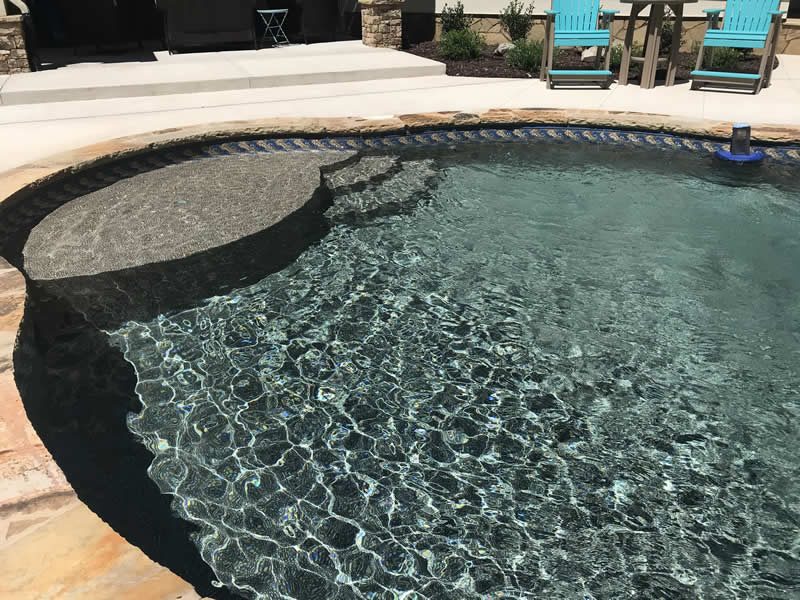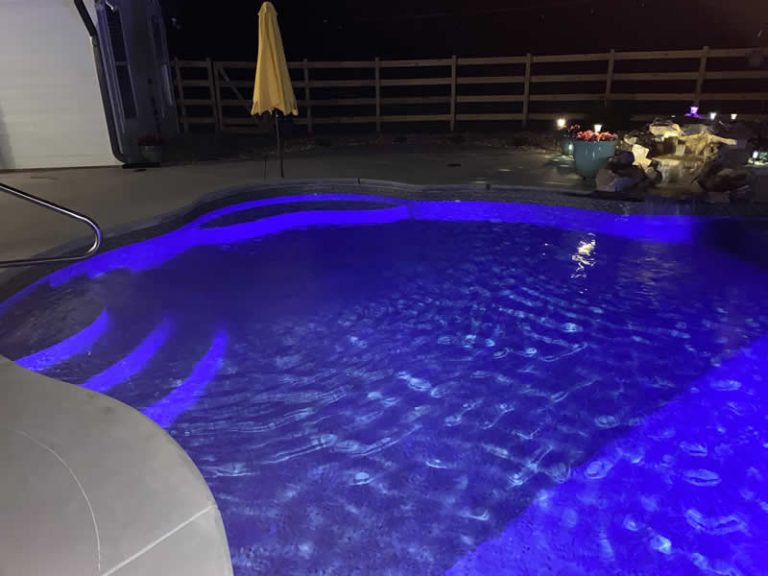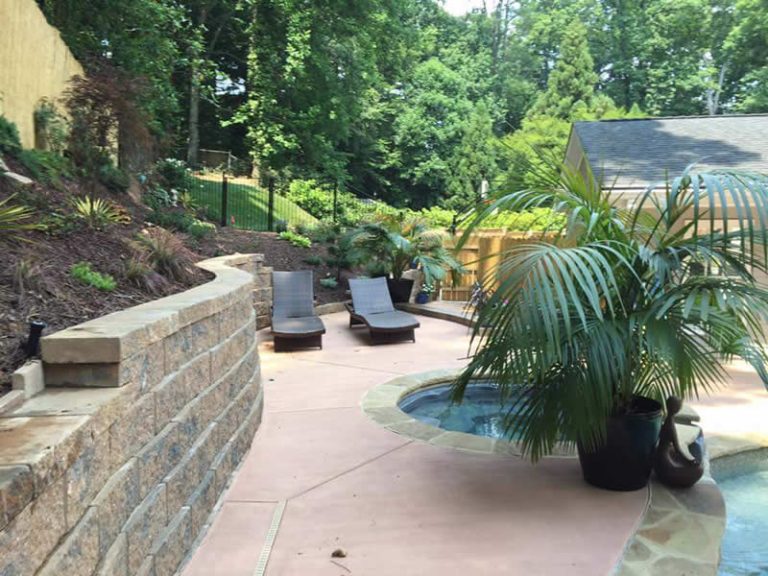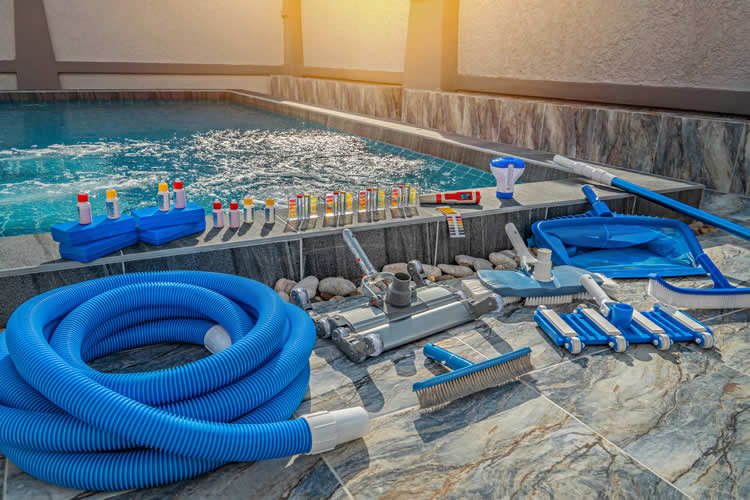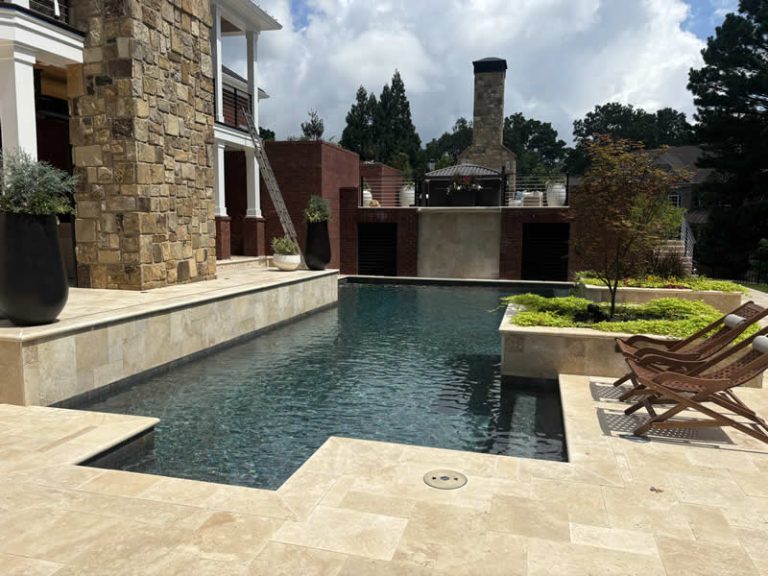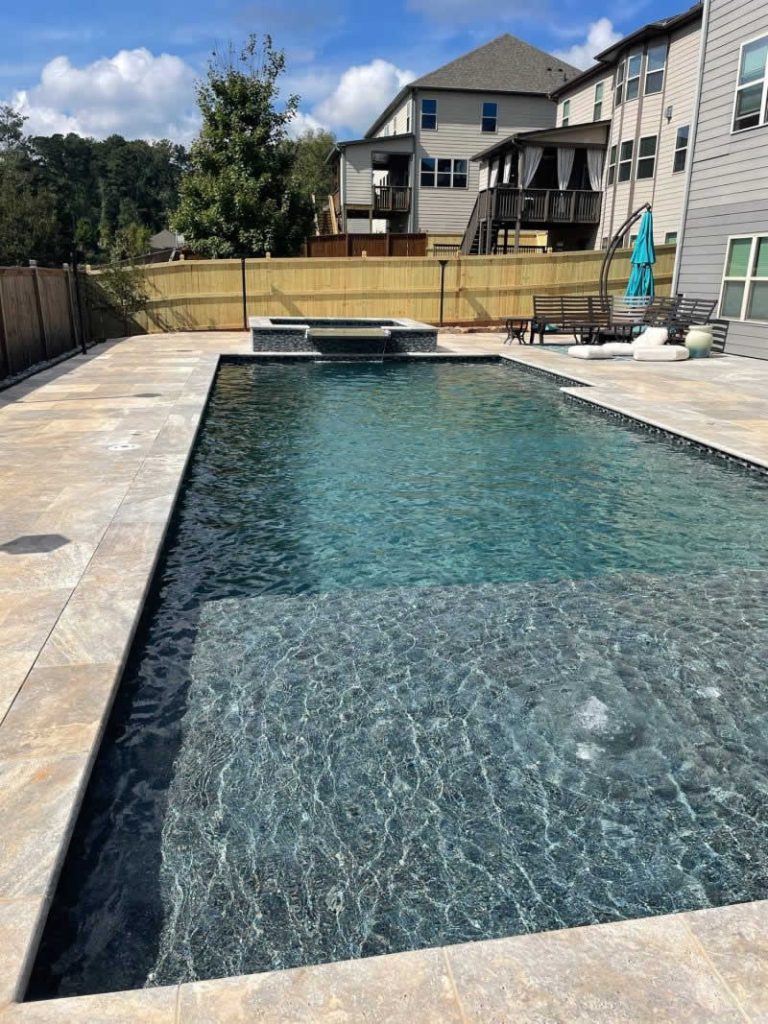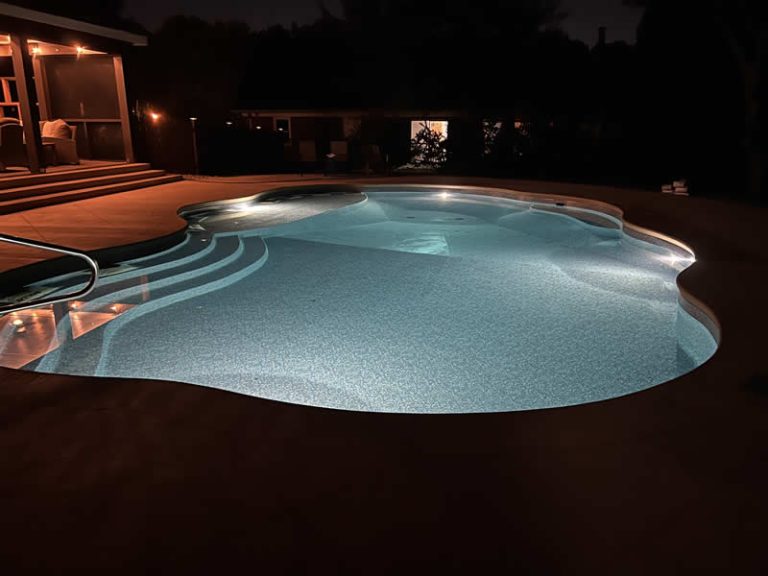Saltwater vs. Chlorine Pools — What’s the Real Difference?
Few topics in the pool world stir more confusion than saltwater systems. Somewhere along the line, people started assuming “saltwater” meant “no chlorine.” That’s not quite true — in fact, saltwater pools make their own chlorine. But the way they do it, and how that feels for you as a pool owner, is very different from traditional systems.
If you’re torn between saltwater and standard chlorine, it’s not a battle of good versus bad. It’s about what fits your lifestyle, your maintenance habits, and even your local water chemistry.
The Chemistry in Plain English
Let’s start simple. In a traditional chlorine pool, you manually add chlorine — usually in tablets, granules, or liquid form. This chlorine sanitizes the water by breaking down bacteria, algae, and organic contaminants. It works great, but levels fluctuate depending on weather, usage, and how often you test and adjust it.
A saltwater system, on the other hand, uses a salt chlorine generator (often called a “salt cell”) to do the work for you. You dissolve regular pool-grade salt into the water, and the generator converts that salt into chlorine through a process called electrolysis. That means you still have chlorine — it’s just produced continuously and in smaller, steadier amounts.
The result? A smoother, more consistent sanitizer level and less of that sharp chlorine smell most people associate with public pools. It’s the same chemistry, just delivered differently.
How Each Feels in Daily Use
Here’s where the experience really changes. Saltwater pools have softer-feeling water that’s easier on skin, eyes, and swimsuits. If you’ve ever come out of a pool feeling itchy or smelling like bleach, that’s not chlorine itself — it’s chloramines, the byproduct of chlorine doing its job. Because salt systems generate chlorine in smaller doses, they produce fewer chloramines, which makes the water feel “silkier.”
You can actually feel the difference, especially if you swim often. Most homeowners tell me their kids no longer complain about “burning eyes,” and that’s no exaggeration. The salt content is mild — about one-tenth that of ocean water — more like a saline contact solution than seawater.
Traditional chlorine pools can still be very comfortable if they’re managed properly. With steady testing and pH control, they’re crystal clear and odor-free. It just takes more frequent attention.
Upfront and Ongoing Costs
The biggest difference between these systems comes down to money — both upfront and long-term.
- Saltwater pools cost more to install initially because of the generator system, typically $1,200–$2,000 added to the base project. The salt cell itself usually needs replacement every 5 to 7 years at a few hundred dollars. On the flip side, you’ll spend far less on chlorine products over time.
- Chlorine pools have lower startup costs but higher ongoing expenses since you’ll regularly buy tablets or liquid chlorine, especially during Georgia’s long, hot summers.
When you balance it out over 5–10 years, the costs often even out. The question becomes whether you’d rather invest more now for less maintenance later, or keep things simple up front and stay hands-on.
One note: saltwater systems can be a little harder on metal fixtures or natural stone if the water chemistry isn’t balanced. Using proper sealants and regular rinsing around the coping prevents that. It’s not a dealbreaker — just part of smart ownership.
Maintenance and Monitoring
Maintenance routines differ, but not by much. Saltwater pools largely take care of themselves once you dial in the salt level (typically 2,500–3,500 ppm). You’ll still test pH, alkalinity, and chlorine regularly, but adjustments are smaller and less frequent. Every few months, you’ll clean the salt cell with a mild acid rinse to remove mineral buildup. That’s about it.
Traditional chlorine pools require more hands-on chemical management. You’ll monitor chlorine levels closely — especially after storms or heavy swim weekends — and add shock treatments occasionally to reset the water balance. It’s more active work, but it gives you total control if you like tweaking things yourself.
Some homeowners actually prefer the manual approach. They enjoy understanding their water chemistry and adjusting as needed. Others want to “set it and forget it,” and saltwater fits that personality better.
How It Feels Over Time
Long-term, both systems can deliver clear, safe, inviting water. The main differences are subtler: saltwater feels gentler, while chlorine feels cleaner and crisper. Saltwater systems maintain steadier conditions, while chlorine gives you instant feedback — you add, you test, you adjust.
Where you’ll really notice the contrast is in upkeep rhythm. With saltwater, you might go weeks without needing to intervene. With chlorine, you’ll likely spend ten minutes here and there every few days. Neither is a burden; it’s just a matter of preference.
In terms of longevity, both systems last decades with proper care. Salt cells and pumps are replaceable components, while chlorine systems rely on regular refills. It’s a balance between technology and tradition.
Environmental and Health Considerations
Both pool types are safe when maintained properly. The “saltwater is more natural” narrative is a bit exaggerated — again, it’s still chlorine sanitizing the water. But because the chlorine levels are lower and steadier, saltwater pools release fewer chemical byproducts into the air, which can slightly reduce irritation for sensitive swimmers.
From an environmental standpoint, saltwater systems use fewer packaged chemicals, which some homeowners appreciate. Chlorine pools, however, offer greater flexibility during extreme weather — if your water gets contaminated or cloudy, you can shock it immediately with precision.
Choosing What Fits You
Here’s how I usually put it to clients across Atlanta and North Georgia:
- Choose Saltwater if you want a gentler feel, less frequent maintenance, and you’re comfortable investing a little more up front.
- Choose Chlorine if you prefer lower initial costs, more control, and don’t mind checking your water a few times a week.
The most important part isn’t which one’s “better.” It’s that whichever system you choose, you understand it. A saltwater pool isn’t maintenance-free. A chlorine pool isn’t harsh by nature. Both are tools — and with the right care, both can give you a clean, beautiful swimming experience for years.
Let’s Talk …
Let us take care of your Pool & landscape
At Aqua Fun, we don’t just build pools — we build relationships that last for seasons to come. Our team takes the time to understand your space, your needs, and how you actually use your backyard. Then we craft solutions that make every swim, soak, or gathering more enjoyable. It’s not about selling you more; it’s about helping you get it right.
If you’ve been thinking about improving, repairing, or re-imagining your pool, let’s talk. We’ll meet you where you are, explain your options clearly, and make sure the whole process feels simple and stress-free. That’s the Aqua Fun way — real people, real care, and results that speak for themselves.
Mon – Fri
8:00 – 6:00

